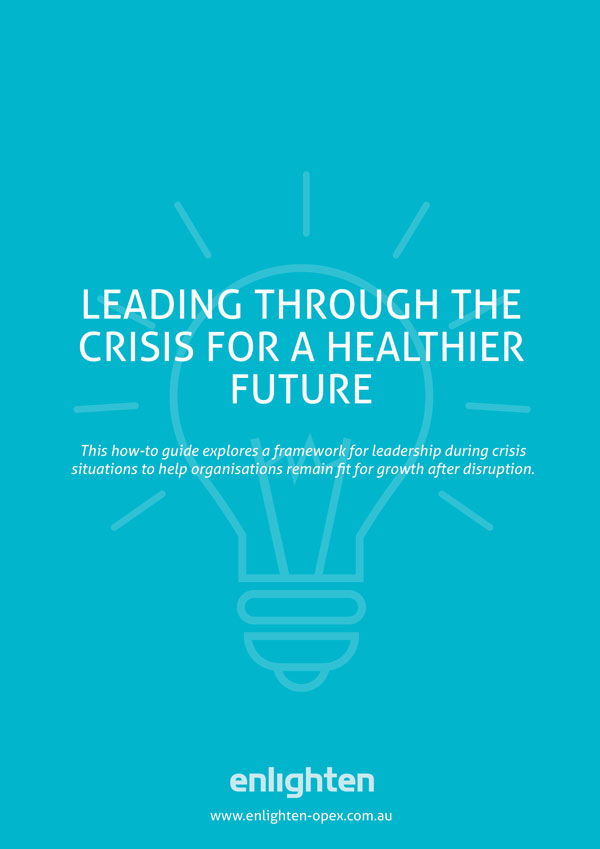With that in mind, the Partnering team works very closely with clients, keeping them in the loop about the latest features of the product and helping them to explore features of the product that they may not have utilised. A big part of what the team does is ensuring we’ve aligned the client’s current business strategy to the parts of our solution that will help them succeed.
Nathan Graham tells us about his career so far, and shares his thoughts about the future of the industry.
What has your career journey been like to date?
I was previously a client of Enlighten. I worked at a business that used Enlighten for almost the whole time that I was there – around eight and a half years. I started working there as a university student, then moved into a business analyst role.
I then led a team of business analysts; we were the product owners for Enlighten, responsible for making sure that all the state managers were fully utilising it and driving improvements based on the data that we were seeing. After that, I finished my career there in an operations manager role. I went from coaching the leaders, to then being a leader using Enlighten to improve my operational teams. I ran the Victoria and Tasmania offices with about 130 FTEs reporting to me.
Because of this, I am very familiar with operations and the stresses and pressures that come with that, but I also know a lot about operational excellence.
Have you had a role model or mentor who has helped you on your journey?
I’ve had many. Most were informal mentors – people that I worked with, in different companies, who I looked up to and learnt from.
I’ve also participated in formalised mentor programs. Over the years, mentors have said I often fixate on what I don’t do well. However, I think this is what makes me a good fit for Enlighten – I’m always focused on improvement. I’ve used mentoring programs to focus on my weaknesses, utilising my mentor’s experience to improve in that space as quickly as I can, or get opportunities to test those skills. And continue to improve, of course.
If you were mentoring a leader of the future, what advice or guidance would you give to help them on their way?
All good things take time. It’s important to remember that you need to put in the time and effort to acquire the necessary experience, so you can confidently move on to the next opportunity. Keep chipping away at it and you’ll be rewarded if you do show the right behaviours.
Is there anything in particular that you would still like to achieve in your career? What is the next step on your journey?
For now, I’m really enjoying working in the operational excellence space. When it comes to Enlighten specifically, I like that there’s a software, tech spin to my work. I’m involved with the application development; the way it evolves, the enhancement ideas and so on.
In the longer term, I’m working towards a transformation manager role. One that’s more senior, where I can use my passion for operational excellence, as well as my leadership and people management experience, to leverage products like Enlighten (and others) to identify an opportunity and develop a mix of people and tech solutions to address it.
What are the biggest challenges you have witnessed to date in the area of leadership and operational excellence?
When I first started as a business analyst, operational excellence was mostly about redefining processes, reducing hand-off points and improving the cycle time. While technology solutions were available then, a big part of operational excellence rested on improving the way people interacted with systems, paper or each other. That still holds true, but today the process is driven by data – and to a huge extent. This shift to rely on data called for a bit of a mindset change in the industry.
In terms of leadership, I think remote leadership is a whole new learned skill compared to leadership in a traditional office environment, where everyone’s physically in the same space. Personally, body language is something that I really read and respond to. You can parse a little bit of that through a video call, but it’s not the same.
During a recent leadership training session, everyone agreed that without video it’s near impossible to form a connection remotely and to understand if the information you’re sharing is being absorbed. It makes leading really tough.
What do you think the future holds for leaders as businesses continue to change rapidly?
We work with many clients in many industries, and they’re almost all working from home at the moment. All are in some form looking to hybrid or flexible work arrangements as a long-term solution. We currently have several different initiatives with clients revolving around how we can support them to come to mutually beneficial agreements with their staff.
We help measure and analyse data to see how employees are performing at home versus in the office, so that our client and their employees can come to an agreement that suits the individual’s needs while also benefiting the business and ensuring the business is successful.
I think as time goes by, there will be a natural progression back to the office. My opinion is that those who are in the office more regularly will be front of mind for leaders, which may increase their chances of opportunities. Being physically present in the same space can be very helpful in building rapport with managers and senior leaders in the business.
While COVID has obviously changed the way we work for good, I don’t think anything will replace the rapport that you build when you meet face to face. This will also be important for projects and roles where collaboration is key.
Where do you see the industry headed in the immediate to mid-term future?
With companies moving towards a hybrid workforce, many opportunities and challenges have emerged for Enlighten. I’ve worked with many managers who like to walk the floor, but with a hybrid environment, the reality of that comes through with data. Data enables workforce visibility in today’s hybrid environment – and this is a major opportunity for us.
One challenge for me would be the progression of Operational Excellence. I think we’re at a tipping point, where there’s quite often too much data. It can be hard to sift through the data and quickly find the gems, which you can use to bring about positive change or improvement.
Going forward, there’s likely to be more automation, greater use of digital systems by staff, and so on – every business will be gathering more and more data, and the key will be getting something meaningful out of that, so you can make smart decisions using tools like AI. These are the spaces that Enlighten is starting to play in, allowing us to deliver better insights and suggestions that are solidly grounded in data.


